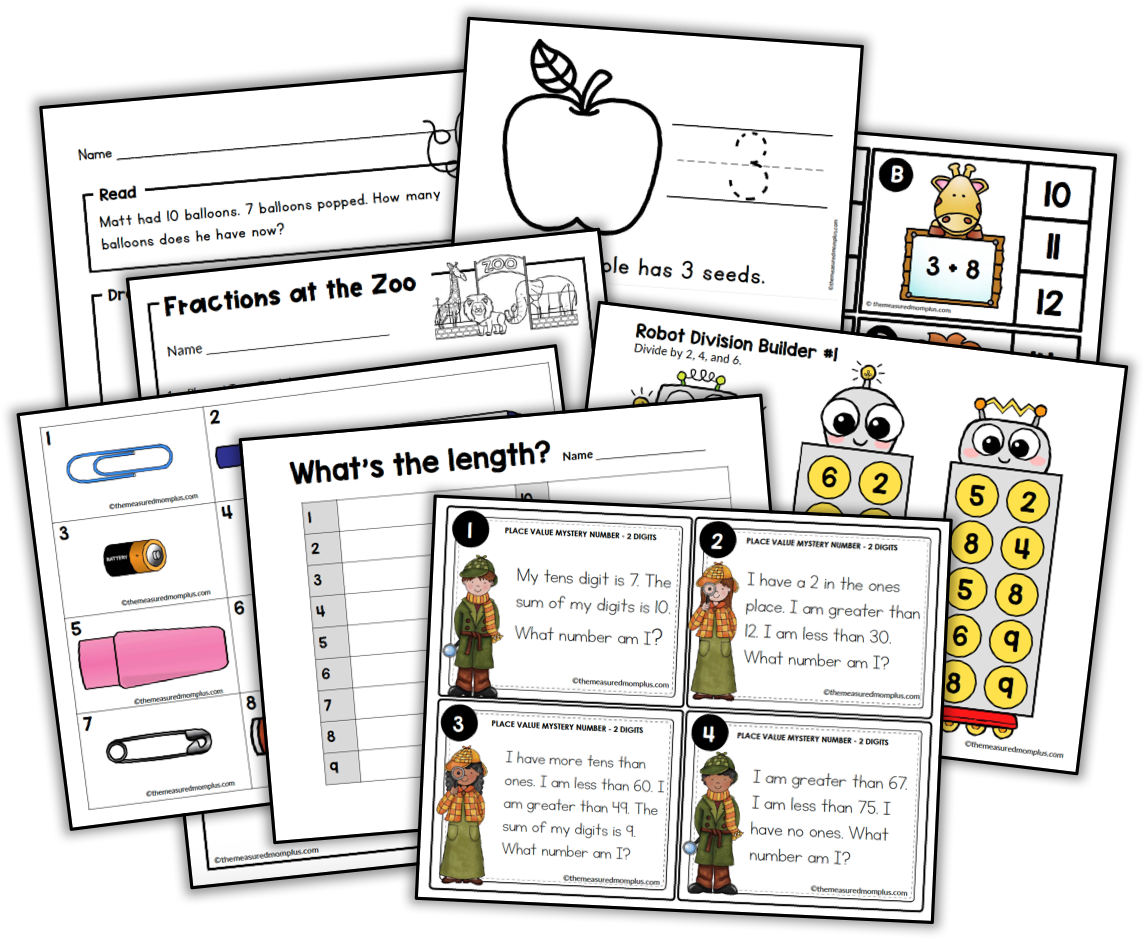How can we help kids love math … even when we don’t? Here are five tips!

I still remember standing beside my fourth grade teacher’s desk, overwhelmed with tears and quite sure the world was over.
How on earth was I supposed to make sense of all these numbers? How could I remember where to put them, what to do next, and how to keep it all straight?
My kind teacher (he might have been a little used to my drama) laughed gently, put his arm around my shoulder, and said calmly, “Anna, Anna, Anna…” It wasn’t long before the fog cleared and the mystery of long division made sense.
Do you have a similar story? Many of us learned math with a few tears and a fair amount of frustration.
For many, math just doesn’t come easy.
If we have negative feelings about math, how can we keep from passing those on to our kids? How can we help them love math … even when we don’t?
5 Quick tips for helping your kids love math
When I’m looking for a playful math idea, game, or activity, I know right where to go. The blog What Do We Do All Day? is bursting with math games, books, and activities for all ages.
So you can bet I was thrilled when Erica asked me to co-write a series about making math fun for every age level.
Here are some quick highlights from that series, with links to each post so you can learn more.
1. Play math games.
Thankfully, math games are easy to find! Whether you pull out a shape sorter for your toddler, a math game for K-2 or a more advanced math game for older kids, this is a great way to take the stress out of math and just enjoy it.
2. Do fun math investigations.
When we save math for homework time (and only homework time), it’s no wonder that our kids get grumpy about it. Try some fun math investigations with younger kids (get ideas in this post). Have older kids? Try some of these fun brain teasers at your next family gathering.
3. Ask thoughtful math questions.
If you’re only asking the answer to a math problem (“What’s 5 x 8?”) you make math one-dimensional. There’s so much more to math than basic operations.
It may not be possible to ask thoughtful questions at homework time. (Our house is a little too crazy between 3:30 and 5.) That’s okay.
Are you waiting for basketball practice to start? Sitting in the waiting room? Stuck in traffic? Leave the electronics alone and talk about math instead! (It can be fun. Seriously.) Check out this post for sample questions.
4. Change how you talk about math.
When my daughter comes to me with a difficult math problem, I can feel my stress level rising. As the baby fusses, my toddler calls for help in the bathroom, and the big kids are fighting, the last thing I want to do is puzzle through a math problem.
Sometimes my attitude is less than positive. (Ahem. Way less.)
The challenge for me and you is to model persistent enjoyment of math. Let’s not look at math as something that’s out to frustrate us, but as a fascinating puzzle just waiting to be solved. When we’re calm and sure that there’s a solution, we pass that positive approach on to our kids.
5. Read books about math.
This is the easiest (and arguably the most important) item on this list. Read, read, read! You might be amazed at how many picture books support early and advanced math learning. Not sure where to find these books? No problem – What Do We Do All Day has done the work for you! Just click on the links below.
- books about math for babies and toddlers
- books about math for preschoolers
- books about math for kids in K-2
- books about math for kids ages 8-12
Learn how to make math fun at all different age levels! Just click on an age range below.









Am Hunter
Those are great ideas for parents. I’ve spent a fair bit of time sharing similar ideas with fellow teachers to help them take the anxiety out of Math learning. It’s all about each child building confidence in their ability to learn Math skills.